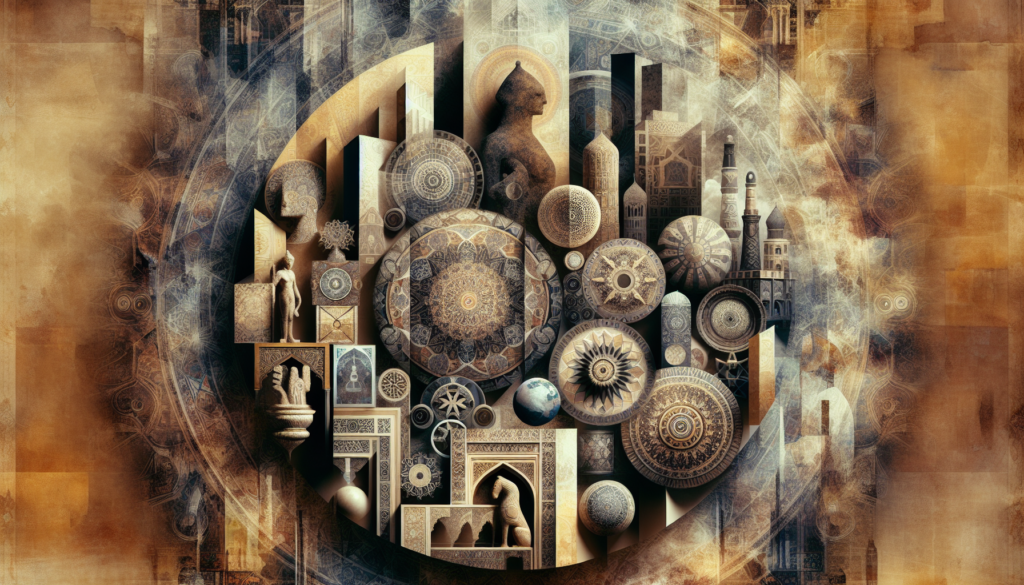Persians, despite their undeniable allure and rich cultural heritage, have their fair share of negative aspects that cannot be overlooked. This article aims to shed light on some of the less desirable characteristics of Persians. From their often overly proud attitude to the tendency for materialism, we will explore the not-so-ideal aspects of Persian culture that exist alongside their many positive qualities. By doing so, we hope to provide a balanced perspective on the Persian community and encourage understanding and open-mindedness.
Behavioral Stereotypes

Arrogance towards other cultures
Persians are often perceived as having a certain arrogance towards other cultures. This can manifest in various ways, such as belittling or dismissing the customs, traditions, and values of other societies. This behavior can lead to a lack of appreciation and understanding of different cultures and hinder meaningful interactions and mutual respect.
Exclusivity within their community
Persian communities have been known to exhibit exclusivity, sometimes creating barriers between themselves and those outside their cultural circle. This exclusivity can manifest in social events, gatherings, and even business opportunities. While it is natural to gravitate towards one’s own community, it is important to foster inclusivity and embrace diversity to promote a more harmonious coexistence.
Reluctance to assimilate in host countries
An unfortunate stereotype associated with Persians is their perceived reluctance to assimilate in host countries. While it is important to preserve and celebrate one’s cultural heritage, it is equally crucial for individuals to adapt to the customs and values of their adopted country. Embracing the native language, participating in community activities, and respecting local laws can help bridge cultural gaps and create a more inclusive society.
Gender Inequality
Limited rights and opportunities for women
In Persian society, women face significant limitations on their rights and opportunities. This inequality manifests in various aspects of life, including education, employment, and personal freedom. Women often encounter obstacles in pursuing higher education or certain professions, and their roles within the family and society can be narrowly defined. Addressing gender inequality and providing equal opportunities for women is crucial for the progress and development of any society.
Enforced segregation and dress codes
Another aspect of gender inequality in Persian culture is the enforcement of segregation and dress codes, particularly for women. This can range from the strict separation of men and women in public spaces to the imposition of modesty dress codes that dictate how women should dress. Such restrictions limit personal freedoms and perpetuate the notion that women’s bodies need to be controlled. Encouraging autonomy and choice in dress and social interactions can help ensure gender equality.
Political Repression
Strict censorship and control of media
Persian society has a history of strict censorship and control of the media. This censorship not only limits freedom of expression but also hinders access to accurate and diverse information. Controlling the flow of information allows those in power to shape public opinion and suppress dissenting voices, ultimately impeding democratic processes and the development of a robust civil society.
Suppression of dissent and human rights activism
The Iranian government has been known to suppress dissent and stifle human rights activism. This suppression can take the form of arbitrary arrests, intimidation, and even physical violence against individuals who speak out against the government or advocate for human rights. The restriction of civil liberties and the harassment of activists stifles freedom of speech, undermines democracy, and hampers the overall progress and well-being of society.
Discrimination against Minorities
Marginalization of ethnic and religious minorities
In Persian society, ethnic and religious minorities often face marginalization and discrimination. The rights and opportunities available to these minority groups are limited, with unequal treatment prevalent in areas such as education, employment, and access to basic services. A diverse society that embraces the contributions of all its members is essential for cultivating a thriving and inclusive community.
Unequal treatment in educational and professional opportunities
Minority groups in Persian society often experience unequal treatment when it comes to educational and professional opportunities. Limited access to quality education and biased selection processes hinder the advancement of individuals from minority backgrounds. Equalizing opportunities and eliminating discriminatory practices can help create a more just and inclusive society that values the contributions of all its members.
Anti-LGBTQ+ Stance
Homophobia and discrimination against LGBTQ+ individuals
Persian society has been known to exhibit homophobia and discrimination against LGBTQ+ individuals. LGBTQ+ individuals often face prejudice, intolerance, and exclusion, which can lead to a lack of acceptance, mental health challenges, and limited opportunities for personal growth. Fostering a culture of acceptance, embracing diversity, and implementing laws that protect LGBTQ+ rights are crucial steps toward creating a more inclusive and equitable society.

Absence of legal protections for LGBTQ+ rights
The absence of legal protections for LGBTQ+ rights further exacerbates the discrimination faced by the community in Persian society. Without legal safeguards, LGBTQ+ individuals are vulnerable to discrimination, harassment, and even violence, with little recourse for justice. Recognizing and respecting the rights of all individuals, regardless of their sexual orientation or gender identity, is essential for promoting equality and inclusivity within a society.
Animal Cruelty
Widespread abuse and neglect of animals
Unfortunately, animal cruelty persists in certain segments of Persian society. Animals are often subject to abuse, neglect, and inhumane treatment. From street animals without access to basic care to the mistreatment of animals in various industries, such as farming and entertainment, these practices disregard the rights and well-being of animals. Promoting awareness, implementing animal welfare legislation, and encouraging responsible pet ownership can help address this issue.
Illegal smuggling of endangered species
The illegal smuggling of endangered species is also a concerning problem in Persian society. The demand for exotic pets, trophies, and traditional medicines fuels this illicit trade, contributing to the decline of endangered species and global biodiversity. Strengthening law enforcement, raising awareness about the importance of conservation, and supporting initiatives that protect endangered species are essential steps towards combatting this issue.
Gender-based Violence
High rates of domestic violence and marital rape
Gender-based violence, including domestic violence and marital rape, continues to be a significant issue in Persian society. Many women suffer in silence due to social stigma and the lack of legal protections. Providing comprehensive support services for survivors, implementing stringent laws, and promoting awareness about consent and healthy relationships are crucial in combating gender-based violence and fostering a safer society for all.
Inadequate legal protections for victims
Persian society still grapples with inadequate legal protections for victims of gender-based violence. The lack of comprehensive legislation, limited access to justice, and societal attitudes that blame victims perpetuate a cycle of abuse and discourage survivors from seeking help. Strengthening legal frameworks, establishing support systems, and educating the public about gender equality and women’s rights are vital steps toward addressing this issue.
Economic Inequality
Extreme wealth disparity
Economic inequality is a pressing issue in Persian society, with extreme wealth disparity between the affluent few and the majority of the population. The concentration of wealth among a select few can widen the gap between the rich and the poor, exacerbating social divisions and hindering equal opportunities for upward mobility. Implementing effective social welfare programs, promoting fair wealth distribution, and creating an inclusive economy are crucial in tackling this issue.
Limited social mobility for the lower class
The lower class in Persian society often faces limited social mobility, impeding their ability to escape poverty and improve their living conditions. Factors such as limited access to quality education, unequal employment opportunities, and systemic barriers contribute to this issue. Investing in education, job training programs, and creating equal opportunities for all individuals, regardless of their social background, are important steps towards reducing economic inequality and fostering a more equitable society.
Religious Intolerance
Persecution of religious minorities
Religious intolerance persists in Persian society, leading to the persecution of religious minorities. These minority groups face discrimination, harassment, and restrictions in practicing their faith. Promoting interfaith dialogue, respecting religious diversity, and safeguarding the rights of all individuals to freely practice their religion are essential in fostering a more tolerant and inclusive society.
Imposition of strict religious laws
The imposition of strict religious laws can limit personal freedoms and infringe upon the rights of individuals in Persian society. These laws often impede gender equality, restrict personal expression, and limit individual autonomy. Balancing religious values with respect for human rights is crucial for creating a society that celebrates diversity and promotes meaningful coexistence.
Corruption
Bribery and embezzlement at various levels of government
Corruption is a significant concern in Persian society, with instances of bribery and embezzlement occurring at various levels of government and public institutions. Corruption not only undermines trust in public officials but also diverts resources away from public services and hampers economic development. Ensuring transparency, strengthening anti-corruption measures, and holding accountable those who engage in corrupt practices are necessary for building a more transparent and accountable society.
Lack of transparency in financial transactions
The lack of transparency in financial transactions in Persian society creates an environment conducive to corrupt practices. This lack of transparency enables the circumvention of regulations, money laundering, and illicit financial activities. Implementing robust financial regulations, promoting transparency in financial transactions, and fostering a culture of accountability are crucial for combating corruption and creating a more ethical and just society.
In conclusion, Persian society, like any other, faces a range of challenges that need to be addressed to promote a more inclusive, equitable, and progressive society. By acknowledging and confronting these issues, society can work towards transforming stereotypes, promoting respect for diversity, and fostering social, economic, and political change that benefits all its members.
